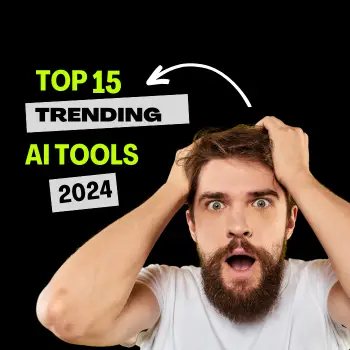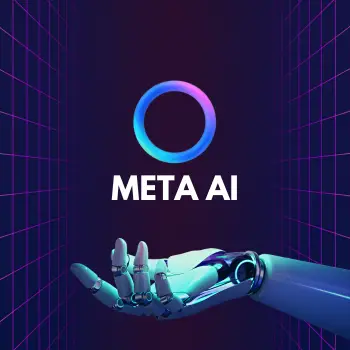GPT-5 is the latest and most advanced language model from OpenAI, marking a big leap from GPT-3 and GPT-4. This model can understand and process human language with great accuracy and subtlety. GPT-5 excels in understanding context, generating coherent and relevant text, and interacting with users in a very human-like way.
The changes in GPT-5 are major and transformative. With more data and advanced algorithms, GPT-5 understands user intent more deeply, offering precise and helpful responses. It can also connect with external data sources, providing more personalized and informed interactions.
GPT-5 sets a new standard for AI, making it hard to tell apart from human intelligence. Whether writing poetry, coding, or having casual chats, GPT-5 performs these tasks with a finesse close to human intellect. The release of ChatGPT-5 is expected in late 2024 or early 2025. Some reports suggest it might come out in mid-2024, possibly in the summer, but these are just expectations, and OpenAI has not confirmed an exact date yet.
Key Features and Improvements
Enhancements in Language Understanding
-
- Improved Understanding: ChatGPT-5 will better understand human language, improving its ability to interpret and respond accurately.
-
- Enhanced Accuracy: It aims to provide more precise and correct responses, reducing errors in logic and reasoning.
-
- Faster Processing: GPT-5 will process information more quickly, allowing for faster interactions and responses.
-
- Complexity Handling: It will excel in handling complex questions or prompts, building on the advancements of GPT-4.
Anticipated Multimodal Capabilities
-
- Handling Different Data Types: GPT-5 is expected to handle various types of information, including text, images, and possibly audio inputs.
-
- Enhanced Flexibility: It will likely improve its ability to process and generate responses based on multiple types of input simultaneously.
Comparison with Previous Versions
-
- Dataset Size and Complexity: GPT-5 is projected to surpass GPT-4 and GPT-3 in dataset size and complexity, leading to more precise and nuanced responses.
-
- Continued Advancements: Building on GPT-4’s progress, GPT-5 will offer even more advanced contextual understanding and reasoning capabilities.
-
- Evolution of AI Capabilities: The transition from GPT-3.5 to GPT-4 already marked significant improvements in AI capabilities, which GPT-5 is expected to continue and enhance further.
Applications and Use Cases
Business Use
-
- Customer Service Automation: GPT-5 can automate responses to customer inquiries, improving efficiency and response time.
-
- Content Creation: It assists in generating blog posts, articles, marketing copy, and other content, saving time and effort.
-
- Legal and Compliance Support: GPT-5 helps in drafting legal documents such as terms of service and privacy policies, ensuring compliance with regulations.
-
- Data Analysis: It interprets large datasets to extract insights and support decision-making processes in businesses.
Personal Use
-
- Educational Assistance: GPT-5 serves as a tutor, explaining complex subjects and providing study aids to students.
-
- Personal Productivity: It helps manage schedules, automate repetitive tasks, and organize personal projects effectively, boosting productivity and efficiency.
Technical Details
Architecture
-
- Built on Transformer Technology: GPT-5 is expected to continue using the transformer architecture, enhancing it for better efficiency and performance.
-
- Enhancements for Efficiency: Specific improvements are made to ensure faster processing and more effective utilization of computational resources.
Training Data
-
- Diverse Internet Text: GPT-5 is trained on a wide range of internet texts to improve its understanding and generation capabilities.
-
- Improving Accuracy: This diverse dataset helps GPT-5 produce more accurate and contextually relevant responses, benefiting from a broader range of linguistic contexts.
Safety and Ethics
-
- Commitment to AI Safety: OpenAI prioritizes safety, conducting rigorous testing and seeking feedback from external experts.
-
- Bias Mitigation: Techniques like reinforcement learning with human feedback are employed to refine the model’s behavior and mitigate biases.
-
- Ethical Guidelines: OpenAI implements strict monitoring and safety systems to ensure the ethical use of GPT-5, aiming to prevent misuse and promote responsible AI applications.
Early Testing and Feedback
Beta Testing Involvement
-
- Companies and Individuals: Various organizations and individual testers participate in beta testing GPT-5.
-
- Structured Feedback: Feedback is collected through mechanisms like action APIs, providing structured insights.
Feedback Importance
-
- Enhancing User Experience: Insights gathered during beta testing help developers improve the user experience of GPT-5.
-
- Performance Improvement: Feedback aids in refining the application’s performance based on real-world usage data.
User Experiences
-
- Positive Initial Feedback: Users have reported positive improvements in GPT-5’s ability to handle complex queries.
-
- Continuous Improvement: Ongoing user feedback is crucial for identifying and addressing areas needing further enhancement in GPT-5’s functionality and performance.
Artificial General Intelligence (AGI) Vision
OpenAI’s Goal
-
- Long-term Objective: OpenAI aims to develop AGI, which would match human intelligence capabilities.
-
- GPT-5 as Progress: GPT-5 represents a step towards AGI, enhancing capabilities and paving the way for future advancements.
-
- Accessible Technology: The goal is to create widely beneficial and accessible AI tools for various applications.
Future Developments and Vision
-
- Continued Advancements: OpenAI plans to advance AI technology post-GPT-5, focusing on improving reasoning, reliability, and understanding.
-
- Industry Standards: Future models may set new industry benchmarks with significant improvements in performance and functionality.
-
- AI as an Operating System: Vision includes integrating AI as an operating system, enhancing real-time voice interactions and expanding multimodal capabilities.
Public Opinion on GPT-5
Expert and Technologist Views
-
- Excitement: Many experts and technologists are excited about GPT-5’s potential to advance AI capabilities.
-
- Skepticism: Some experts express concerns about limitations and risks associated with GPT-5.
General Public Perspective
-
- Varied Views: Public opinion on GPT-5 ranges from embracing its benefits to expressing caution due to ethical considerations.
Ethical Concerns
-
- Data Misuse: There are concerns about potential misuse of data processed by GPT-5.
-
- Privacy Protection: Ensuring privacy safeguards for users interacting with GPT-5 is crucial.
-
- Disinformation: Issues related to spreading false information or digital manipulation using GPT-5 are discussed.
-
- Responsible Use: Developers and policymakers prioritize addressing ethical concerns and promoting responsible use of advanced AI technologies like GPT-5.
Practical Information 

How to Access GPT-5
-
- OpenAI API Access: Individuals and businesses can access GPT-5 through the OpenAI API by completing a payment process.
-
- Payment Process: Users need to add credit to their OpenAI account and select the desired model for use.
Pricing
-
- Token-based Cost: The cost of using GPT-5 depends on the number of tokens consumed during usage.
-
- Pricing Structure: OpenAI offers pricing per 1 million (1M) or 1 thousand (1K) tokens, with discounts available for batch API usage completing within 24 hours.
Support and Resources
-
- Comprehensive Resources: OpenAI provides detailed documentation, support forums, and tutorials to assist users in understanding and effectively utilizing GPT-5.
-
- User Assistance: These resources are designed to support users in maximizing their usage and integration of GPT-5 into various applications.


















